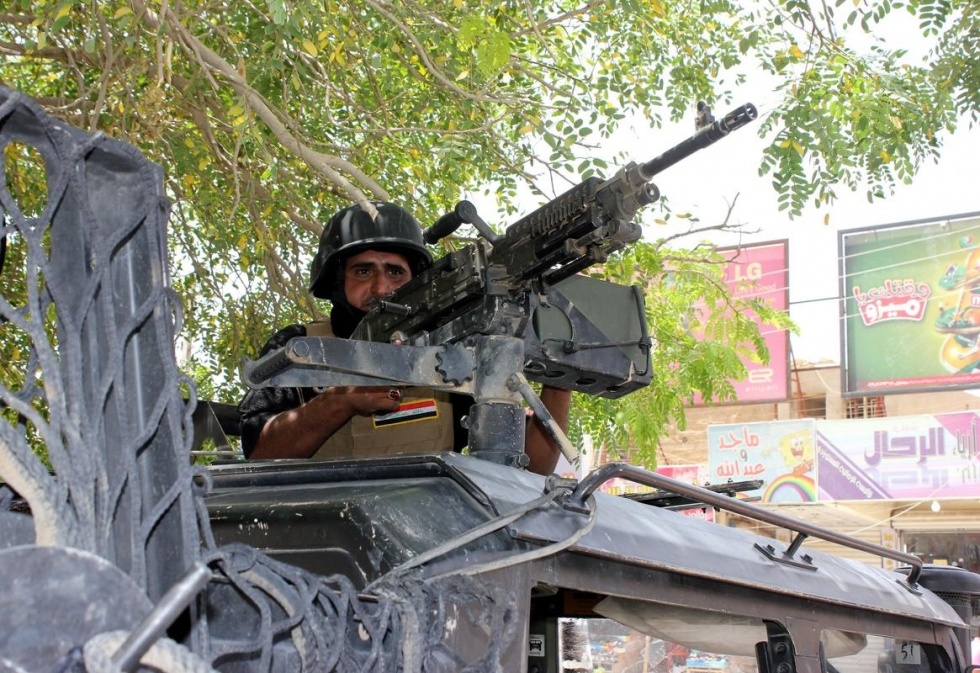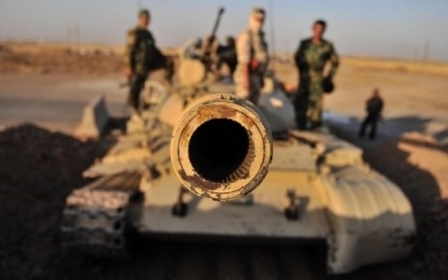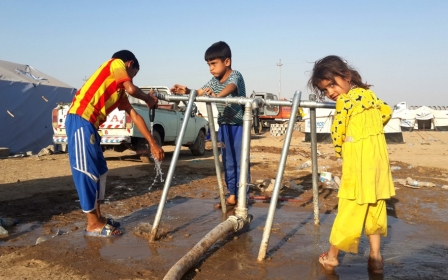Iraqi PM calls up reserve officers to active duty

Iraqi Prime Minister Nuri al-Maliki Thursday ordered back to duty security officers not currently serving in active units to bolster forces battling a militant offensive that has overrun swathes of territory.
"Officers from brigadier general and lower have been transferred ... to units according to their specialisation and classification," he said in a statement read on state television.
The order applies to an unknown number of officers who are still officially members of the security forces but not currently assigned to active duty units.
The officers will be assessed for a period of three months and those who are not deemed capable will be retired, the premier said.
The announcement comes as militants hold a swathe of territory covering areas of four provinces in northern and central Iraq, which they overran in a matter of days.
Security forces performed poorly when faced with the initial militant offensive, in some cases deserting and fleeing.
They appear to have at least somewhat recovered from the shock of the onslaught, regaining ground in some areas, but militants have still managed to advance in others.
Iraq PM under fire
Top US officials warned Maliki against "sectarian" policies as President Barack Obama Thursday weighed calls for air strikes on Sunni insurgents bearing down on Baghdad.
The sharp criticism of the embattled premier came as he scrambled to push back militants who have seized the second city Mosul and a swathe of territory north of Baghdad in an offensive that could threaten Iraq's very existence.
In a sign of what the Pentagon has described as Iraqi forces' "stiffening resistance", however, security forces regained full control of the country's main refinery after protracted clashes with insurgents.
Baghdad has formally requested that Washington launch air strikes on the advancing militants, but there were no signs US military action was imminent.
Instead US officials castigated Maliki, who is being blamed in Washington for causing Iraq to splinter after discriminating against the minority Sunni community.
Vice President Joe Biden drove home the US message that Maliki needs to lead all Iraqis, not just Shiites.
He told the Iraqi leader in a telephone call that he must govern in an "inclusive manner, promote stability and unity among Iraq's population, and address the legitimate needs of Iraq's diverse communities," a White House statement said.
Petraeus urges political reconciliation
Former US commander in Iraq David Petraeus urged reconciliation, warning at a conference in London that Washington risked becoming an "air force for Shiite militias" and supporting "one side of what could be a sectarian civil war".
And US Secretary of State John Kerry on Thursday stressed that Washington was seeking to help all Iraqis, not merely prop up Maliki.
"This is not about Maliki," Kerry told NBC in an interview. "Let me stress, what the United States is doing is about Iraq, it is not about Maliki."
Washington has deployed an aircraft carrier to the Gulf and sent military personnel to bolster security at its Baghdad embassy, but Obama insists a return to combat in Iraq is not in the cards.
The United States spent billions of dollars over several years training and arming Iraqi security forces after disbanding the Sunni-led army following the 2003 invasion that ousted dictator Saddam Hussein.
But the security forces wilted when faced with the militant offensive on June 9 which saw insurgents quickly capture Mosul, a city of some two million people, and then parts of Salaheddin, Kirkuk and Diyala provinces.
Some abandoned their vehicles and uniforms when faced with the insurgents.
The Sunni fighters have been led by the powerful Islamic State of Iraq and the Levant, but also include a wide coalition of other Sunni Arab militant groups, as well as loyalists of Saddam Hussein.
New MEE newsletter: Jerusalem Dispatch
Sign up to get the latest insights and analysis on Israel-Palestine, alongside Turkey Unpacked and other MEE newsletters
Middle East Eye delivers independent and unrivalled coverage and analysis of the Middle East, North Africa and beyond. To learn more about republishing this content and the associated fees, please fill out this form. More about MEE can be found here.




